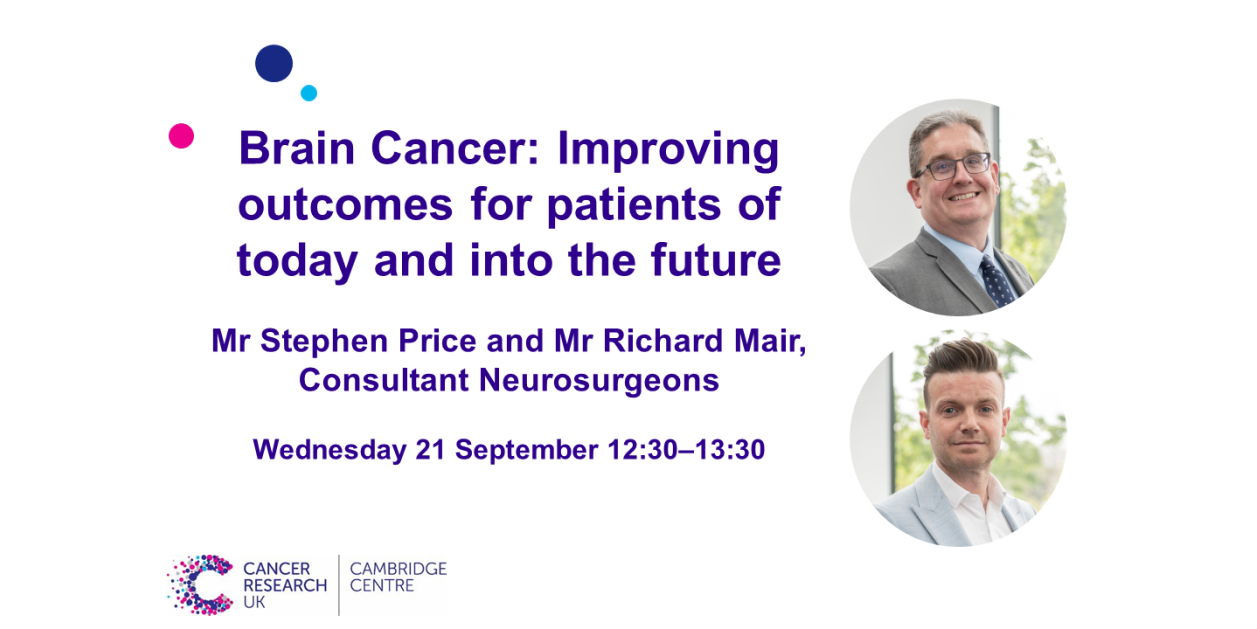
There are around 12,300 new brain, other CNS and intracranial tumours cases in the UK every year, that's 34 every day. However, little change has been seen in mortality rates in the past decade and the outlook for patients, particularly those with high grade tumours remains poor. Tumours in the brain remain difficult to treat by their nature of being present in a highly protected organ. Very little progress in new treatments has been made and Cancer Research UK (CRUK) has designated brain cancer as a Cancer of Unmet Need.
Join Consultant Neurosurgeons Mr Stephen Price and Mr Richard Mair, co-leads of the Brain Cancer Virtual Institute at the Cancer Research UK Cambridge Centre, to hear about pioneering research in Cambridge that’s aiming to improve outcomes for brain tumour patients. Find out about the symptoms, treatments, clinical trials and latest innovations in brain cancer.
Mr Stephen Price is an NIHR Clinician Scientist at the University of Cambridge and Honorary Consultant Neurosurgeon at Addenbrooke’s Hospital. He is currently the network lead for brain tumours at the Anglian Cancer Network and clinical lead for surgical neuro-oncology. Stephen introduced 5-ALA fluorescence guided surgery to Cambridge to help maximise tumour removed and, with colleagues, regularly teach other surgeons how to use these methods. His practice is largely based around the surgical management of malignant brain tumours (gliomas and metastases). His research interest involves using advanced imaging methods to study the effects of tumours on the normal brain surrounding brain tumours. This work aims to better outline the invasive margin of these tumours and understand the effect of these tumours and treatment on the functioning of the normal brain. Stephen is keen to see if we can use these methods to individualise treatments.
Mr Richard Mair is Assistant Professor in Neurosurgical Oncology at the University of Cambridge and an Honorary Consultant Neurosurgeon at Addenbrooke’s Hospital. His lab group employ novel imaging and genomics techniques to try and understand brain cancer evolution and how this relates to interactions between cancer cell intrinsic mechanisms and the brain microenvironment. His clinical interest is in the surgical management of brain cancer. He undertakes a weekly operating list and is one of four dedicated neurosurgical oncology consultants that cover East Anglia.















